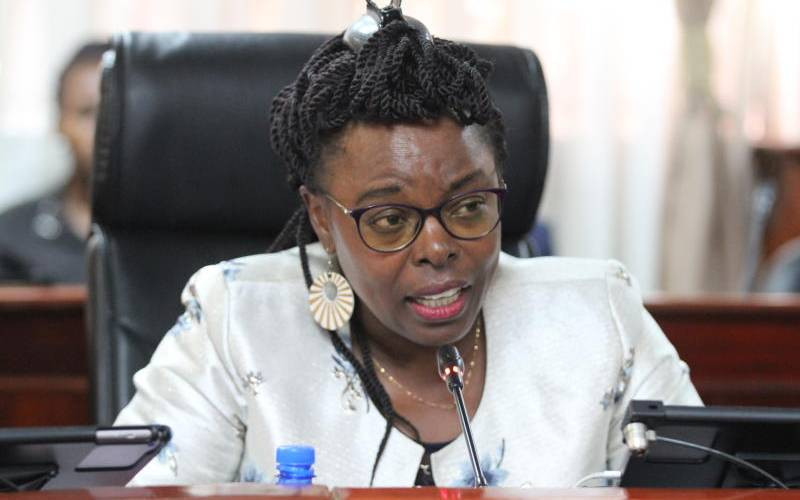×
The Standard e-Paper
Smart Minds Choose Us

Controller of Budget Margaret Nyakang'o when she appeared before the Senate Standing committee Finance and Budget on March 30, 2023 [Elvis Ogina, Standard]
The High Court has ordered the Controller of Budget not to authorize the release of equalization fund meant for marginalized areas in a battle on sharing criteria of the 2022-2023 allocation.